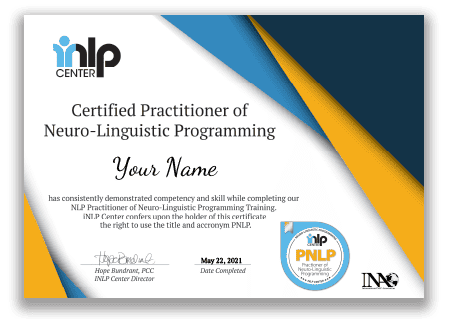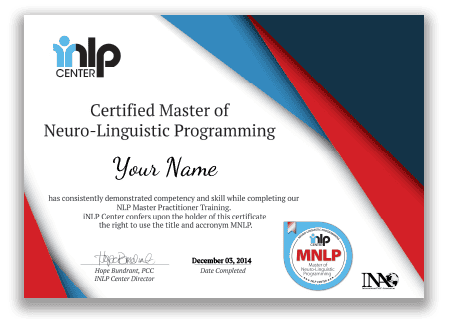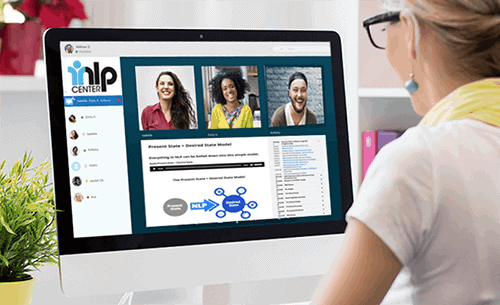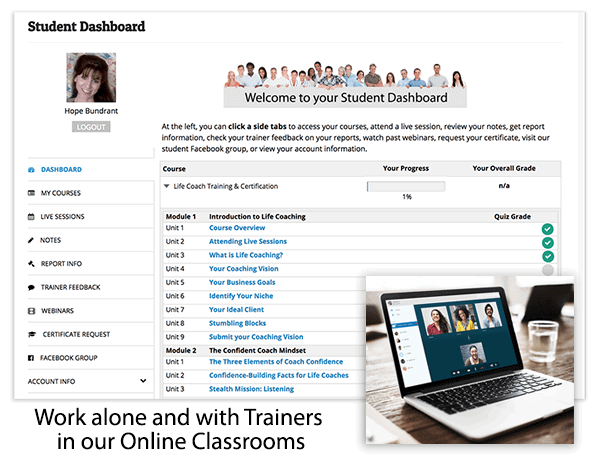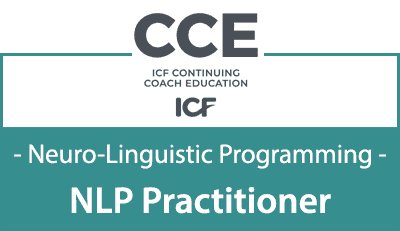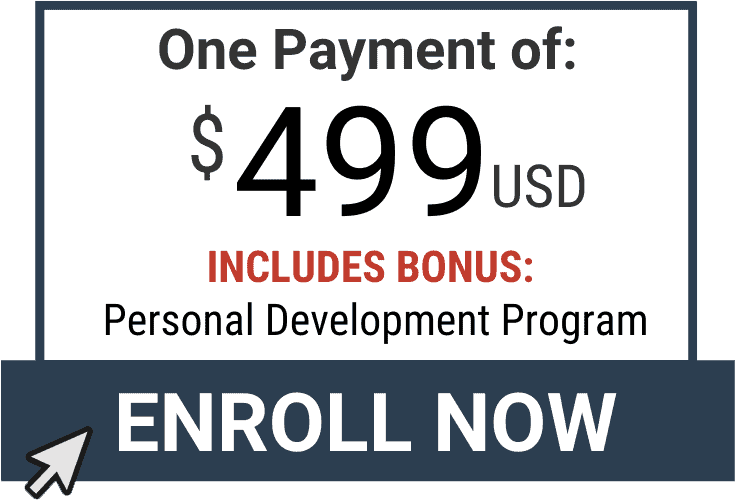NLP Training & Certifications:
Practitioner & Master Practitioner Levels
- 100% Accredited by ICF (International Coaching Federation)
- 23 Modules, 107 Audios, 23 Videos, and 100+ Webinar Library
- Self-paced, online learning environment!
- Daily Small-Group Training Sessions in our Zoom Classrooms
- Lifetime Access to your NLP Learning Material & Live Training Sessions
- Ongoing Trainer Support & Feedback
- Get matched with other students to practice NLP
- Private Student-Only Facebook Group
- Digital Badges and Certificates are Included!
This NLP Training is Accredited by:
- ICF International Coaching Federation
(Completion of NLP Practitioner & NLP Master Trainings receives 24 Coach Core-Competency Hours.) - International NLP Association
(qualifies for PNLP or MNLP credentials)

“I absolutely love my training at INLP Center. I’ve read many books on NLP in the past, but the teaching and the material here are much more helpful to me. Now, I feel I can truly begin to help people due to these courses. I was so amazed at how wonderful the classes are! I have such a deep desire to help others overcome limiting beliefs, and I do not think another organization can prepare me to help others like the INLP Center. Thank you so much for offering these wonderful trainings.” – Joseph Hoyt
Why is our NLP Training So Effective?
Practical Coaching Skills, Not Just Magic Bullets!
We teach NLP from a grounded, coaching-focused perspective that allows learning the models and techniques from a practical foundation, not as a quick, “magical” cure. NLP is a powerful tool that greatly enhances your coaching abilities with clients, resulting in a new awareness of how they think, thus producing a deeper understanding of themselves.
What you can expect from our NLP Training
INLP Center provides an infrastructure that allows you to learn in a flexible online format but also gives you the supervision you need to master the NLP models and grow your skills. Get to know your trainers in our small-group Zoom training sessions, practice the NLP tool with friends and fellow students, and get real feedback on your assigned activities. We put your success first! In fact, we prove it by including lifetime course and live session access – we want you to succeed using NLP!
No multiple-choice quiz.
You’ll learn by actually doing!
Through a series of required offline activities we call Psyche Builders, Stealth Missions, and Coaching Exercises, you’ll practice your new NLP skills and report on your experiences. These activities allow for integrating your new skills into your daily life, plus increase your self-awareness for growth.
Michael Grinder says that at iNLP Center,
“Your Life is Your Classroom.”
The advantage of our training style is that you’re able to use your new NLP skills in the environment they are intended for, not in a training room box. Therefore, if we don’t see successful integration or you have questions, we’re always here to help. You will not find this ongoing, integrated NLP certification training and support anywhere else!
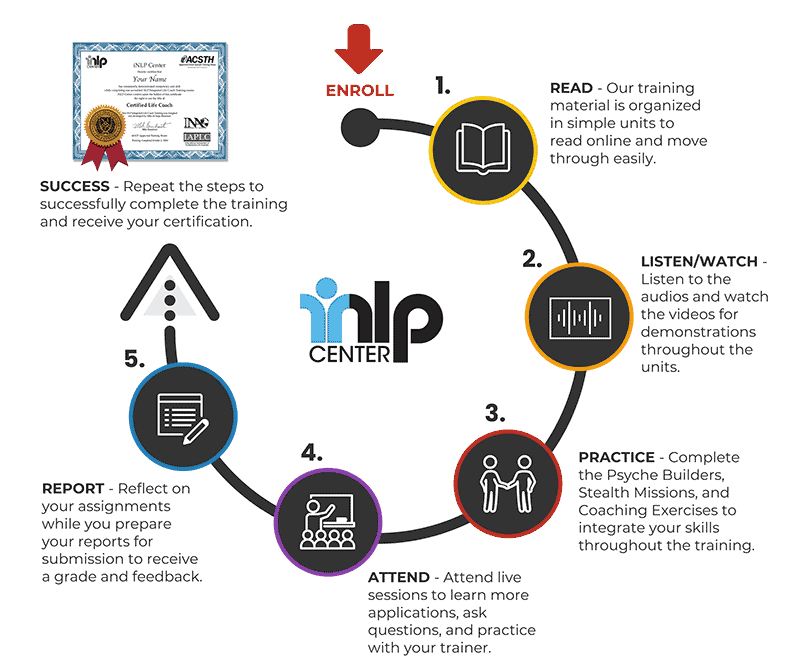
Unlimited Live Training Sessions are INCLUDED with your Enrollment!
Our NLP Trainers are here Every Day to work with you in our Zoom classrooms!
Our online classrooms provide the perfect opportunity for one-to-one trainer interaction, practicing your neuro-linguistic programming skills, and connecting with other students worldwide.
Our live sessions compliment your self-study work with Q&A, demonstrations, and deeper discussions.
Live training sessions are available each day of the week so you’ll have the ability to attend as often as you like!
Weekly Session Times:
(Listed in the Pacific Timezone)
Mondays – 5pm
Tuesdays – 4pm
Wednesdays – 6am
Thursdays – 10am
Fridays – 5am
Saturdays – 3am
Sundays – 4pm
Get Started Right Now!
Access our online training center 24/7, year-round!
- Work from any phone, tablet, or computer with internet access.
- Get immediate access to your Student Dashboard where you can start your training whenever you are ready.
- Live Zoom sessions are available 7 days a week!
- No deadlines and no expiration – work at your own pace!
- Continue your access to the material and live training sessions even after you graduate!
Choose an NLP Training:
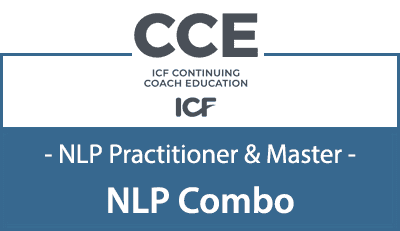
| Includes These Courses: NLP Practitioner Training NLP Master Training Personal Development Program |
| 2 Certifications Included: • NLP Practitioner • NLP Master Practitioner |
| ✓ Daily Live Training Sessions Small-group Zoom |
| ✓ Unlimited Reciprocal Coaching Practice your NLP skills |
| 90-hour Program includes 24 ICF Training Hours |
| ✓ Lifetime Training Access |
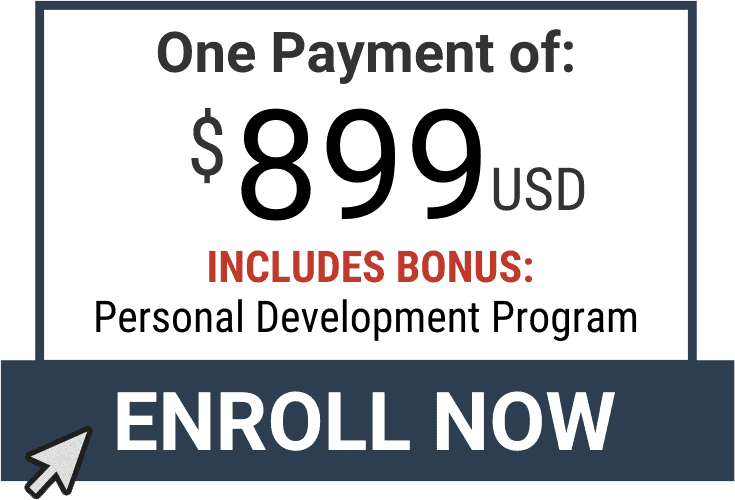 |
| Or, Installment Plan Price: $249/month x 4 months Enroll Now (Total Installment payments=$996) |
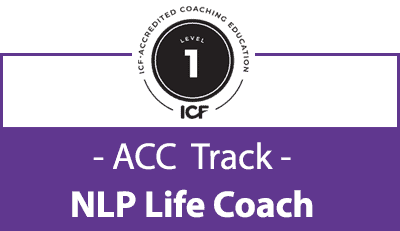
| Includes These Courses: NLP Life Coach Training ICF Coach Mentoring /10hrs Business & Marketing Personal Development Program |
| 3 Certifications Included: • NLP Practitioner • NLP Master • Certified Life Coach (CLC) |
| 70 ICF Coach Training Hours Complete in as soon as 3 months (Self-Paced – No Deadlines!) |
| 10 ICF Mentor Coaching Hours Includes demo approval and test prep |
| ✓ Unlimited Live Training Small-group Zoom sessions |
| ✓ Unlimited Reciprocal Coaching Coach & Get Coached, Earn Coach Practice Hours |
| ✓ Unlimited Marketing Training Learn how to get clients! |
| ✓ Lifetime Training Access |
| ICF Credentialing Support |
Other NLP Training Bundles:
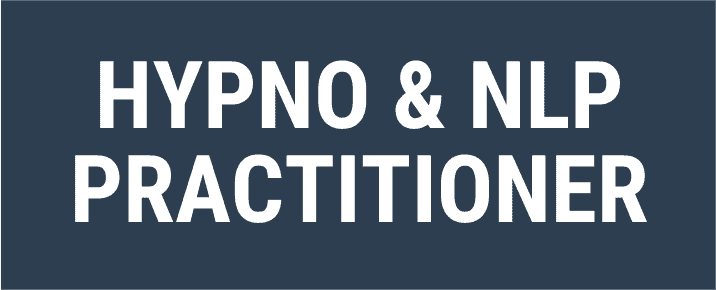 |
Includes These Courses:   |
| You’ll Receive: Certification & Digital Badges Hypnosis Practitioner NLP Practitioner |
| Available each week: 12 Live Training Sessions |
| Earn Unlimited: Reciprocal Coaching Hours |
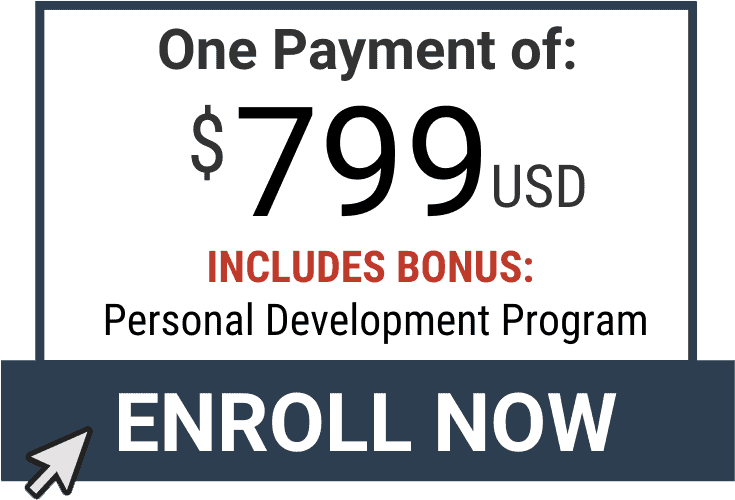 |
| Or, Installment Plan Price: $299/month x 3 months Enroll Now (Total Installment payments=$897) |
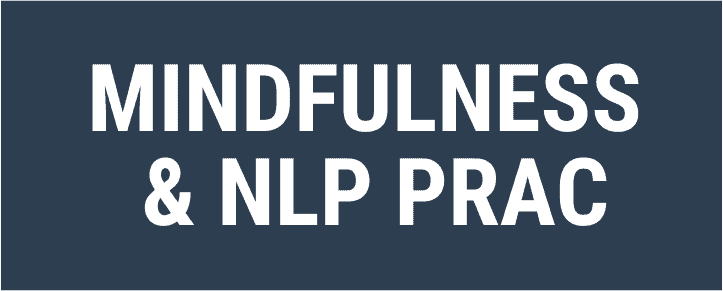 |
Includes These Courses:   |
| You’ll Receive: Certification & Digital Badges NLP Practitioner Mindfulness Practitioner |
| Available each week: 10 Live Training Sessions |
| Earn Unlimited: Reciprocal Coaching Hours |
 |
| Or, Installment Plan Price: $315/month x 3 months Enroll Now (Total installment payments=$945) |
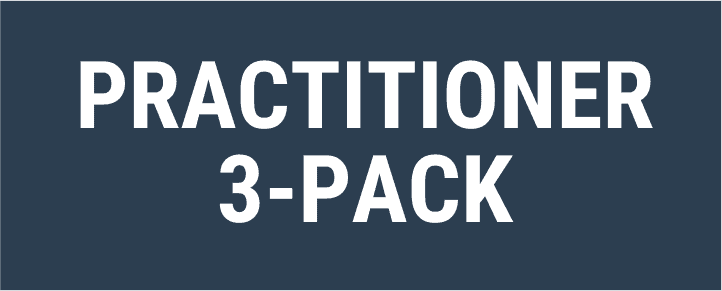 |
Includes These Courses:    |
| You’ll Receive: Certification & Digital Badges NLP Practitioner Hypnosis Practitioner Mindfulness Practitioner |
| Available each week: 10 Live Training Sessions |
| Earn Unlimited: Reciprocal Coaching Hours |
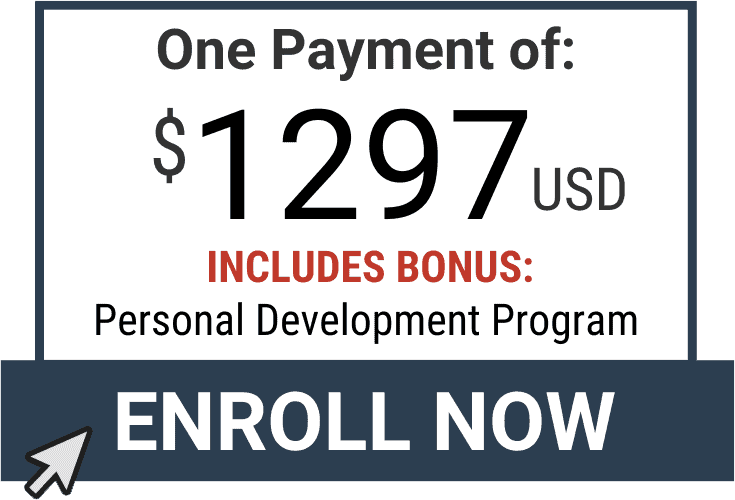 |
| Or, Installment Plan Price: $340/month x 4 months Enroll Now (Total Installment payments=$1360) |
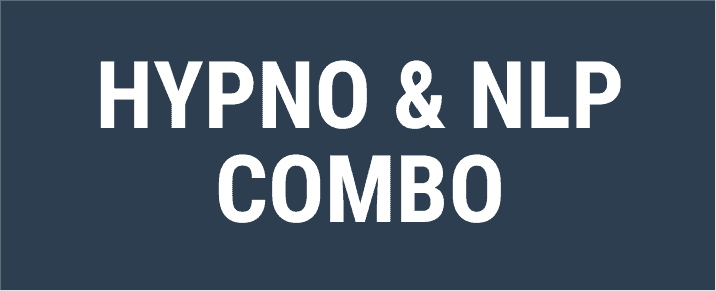 |
Includes These Courses:     |
| You’ll Receive: Certification & Digital Badges NLP Practitioner NLP Master Practitioner Hypnosis Practitioner Advanced Hypnotherapist |
| Available each week: 14 Live Training Sessions |
| Earn Unlimited: Reciprocal Coaching Hours |
| Provides: 25 ICF Training Hours |
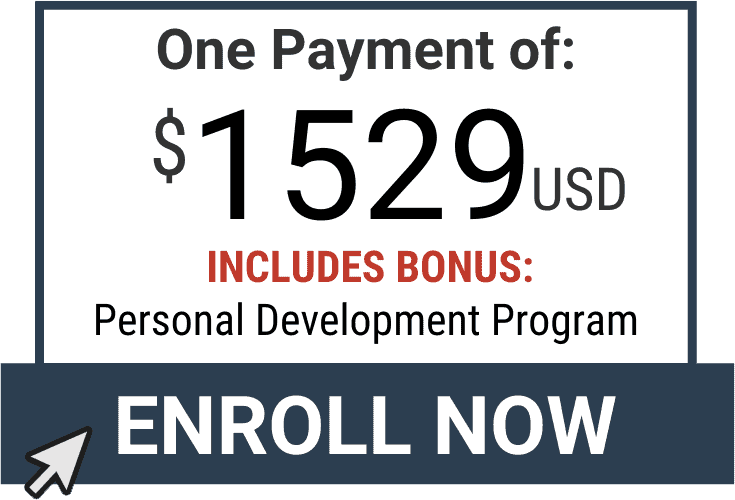 |
| Or, Installment Plan Price: $420/month x 4 months Enroll Now (Total installment payments=$1680) |
What’s Covered in our NLP Practitioner Certification Training:

View Breakdown of this Module
Module 1 |
Introduction to Neuro-Linguistic Programming |
|
|---|---|---|
Unit 1 |
Introduction & Course Overview |
|
Unit 2 |
What is NLP? |
|
Unit 3 |
Present State > Desired State Model |
|
Unit 4 |
Activity: Present State > Desired State |
|
Unit 5 |
NLP Fundamentals: Outcomes |
|
Unit 6 |
NLP Fundamentals: Sensory Acuity |
|
Unit 7 |
NLP Fundamentals: Behavioral Flexibility |
|
Unit 8 |
NLP Fundamentals: Techniques |
|
Unit 9 |
NLP Fundamentals: States of Excellence/Physiology |
|
Unit 10 |
NLP Fundamentals: Curiosity - Defining vs. Exploring |
|
Unit 11 |
The Presuppositions of NLP |
Module 1: NLP Fundamentals: Your Mind at Work
Neuro-linguistic programming aims to move from your present state (or mindset) if it is useful to do so – to a more desired state in which you have more resources. NLP tools can help you accomplish that. Learn the three primary ways to do this.
Learn the definition of sensory acuity, the classic NLP skill you will use to make unique observations throughout the course.
Behavior Flexibility will increase your awareness and help you identify areas where you do not have as much choice as you want.
States of Excellence is another classic NLP concept that drives you to maintain your best state of mind and body for every situation.
Our rare learning perspective will establish the most productive frame of mind for learning in a way that leads to continual discovery.

View Breakdown of this Module
Module 2 |
VAK Representational Systems & Eye Accessing Cues |
|
|---|---|---|
Unit 1 |
Introduction to the VAK Model |
|
Unit 2 |
Representational System Synergy |
|
Unit 3 |
Introduction to Eye Accessing Cues |
|
Unit 4 |
• Coaching Exercise: Eye Accessing Cues in Business, Making Decisions/Solving Problems |
|
Unit 5 |
• Coaching Exercise: Determining Preferred Representational System |
|
Unit 6 |
• Stealth Mission: Eye Accessing Cues |
Module 2: VAK Representational Systems & Eye Accessing Cues
- Inspire greater trust, ethically
- Effectively communicate with a greater variety of people
- Learn to read others with accuracy
Learn the most influential aspects of non-verbal communication through the visual, auditory, and kinesthetic modalities.
Discover the common words and phrases that give away which VAK modality people use. Discover how people are thinking based on their eye movements. When you notice this deeply unconscious pattern, you will know more about how people think than others realize is possible.
Apply your VAK awareness to solve problems in the most effective way for you and help others do the same. Your preferred mode of communication and that of others are revealed.
Learn how to connect with anyone based on unconscious preferences.

View Breakdown of this Module
Module 3 |
Rapport and Other People |
|
|---|---|---|
Unit 1 |
Introduction to Rapport |
|
Unit 2 |
The Six Elements of Rapport |
|
Unit 3 |
Determining Your Rapport Level |
|
Unit 4 |
• Coaching Exercise: Non-verbal Matching and Mirroring |
|
Unit 5 |
• Stealth Mission: Rapport Building |
Module 3: Rapport and Other People
- Create rapport with more people
- Become a master of non-verbal communication
- Get better results with people
Non-verbal communication and rapport are the primary basis for building rapport with anyone in any culture.
You will learn the basic aspects of non-verbal communication, how to use them effectively, and the six elements of non-verbal communication that establish rapport, so you can build a connection quickly with most people.
Classic NLP matching and mirroring exercises allow you to hone your skills. These neurolinguistic programming skills lead to influencing with integrity and noticing when you have established rapport and trust with another person.

View Breakdown of this Module
Module 4 |
NLP States |
|
|---|---|---|
Unit 1 |
21-Day Sensory Acuity Integration Plan |
|
Unit 2 |
Accessing States |
|
Unit 3 |
Anchoring Introduction |
|
Unit 4 |
Creating an Empowering Anchor |
|
Unit 5 |
• Stealth Mission: Create an Empowering Anchor |
|
Unit 6 |
Anchor Collapse |
|
Unit 7 |
Association & Dissociation Introduction |
|
Unit 8 |
How to Associate & Dissociate |
|
Unit 9 |
• Stealth Mission: Association/Dissociation |
|
Unit 10 |
• Psyche Builder: Association/Dissociation |
|
Unit 11 |
New Behavior Generator |
|
Unit 12 |
• Coaching Exercise: New Behavior Generator |
Module 4: NLP States
- Gain greater self-control of emotional states
- Overcome negative emotions
- Release negativity in the past
- Turn yourself into an optimist
- Learn new behaviors and skills quickly
Learn the most effective methods for entering any psychological state at will using a classic NLP technique to strengthen and stabilize resource states and works like no other psychological intervention.
Learn anchoring to resolve stuck states and problems by automatically applying resources to negative thoughts and emotions.
The New Behavior Generator combines the power of visualization with the refinement of NLP to make new behaviors simple and build skills quickly.
Discover how to turn any negative situation into an automatic learning experience and draw from the best positive experiences from the past using NLP Association/Dissociation. This exercise is among the most popular in our course, as it reveals the thought structure of optimism and pessimism.

View Breakdown of this Module
Module 5 |
Strategies |
|
|---|---|---|
Unit 1 |
Introduction to Strategies |
|
Unit 2 |
Phases of Strategy Work |
|
Unit 3 |
Guidelines for Elicitation |
|
Unit 4 |
Guidelines for Design |
|
Unit 5 |
Guidelines for Installation |
|
Unit 6 |
Accurate Spelling Strategy |
|
Unit 7 |
Decision Strategies |
|
Unit 8 |
Decision Strategy Elicitation |
|
Unit 9 |
Decision Strategy - Design, Installation, and Test |
|
Unit 10 |
Troubleshooting Decision Strategies |
|
Unit 11 |
• Stealth Mission: Decision Strategy |
|
Unit 12 |
• Psyche Builder: Worst Decision Strategy |
|
Unit 13 |
• Psyche Builder 2: Best Decision Strategy |
|
Unit 14 |
Motivation Strategies |
|
Unit 15 |
Motivation Strategies Demonstration |
|
Unit 16 |
Troubleshooting Motivational Strategies |
|
Unit 17 |
• Psyche Builder: Motivation Strategies |
|
Unit 18 |
• Coaching Exercise: Motivation Strategies Practice |
Module 5: NLP Strategies
- Make better decisions with confidence
- Get past lack of motivation
- Motivate yourself easily to do necessary but unpleasant tasks
- Understand how to create mental strategies for success
You will learn the modeling patterns that put NLP on the map. Using VAK skills learned in earlier modules, a new world of thought processes will unfold before you. You’ll find out how results are created internally before they happen outwardly. Then, you will discover how to rearrange a strategy to produce far better results.
This classic NLP strategy is simple to learn and improves spelling quickly and dramatically for those who need it.
What makes a good decision? How are bad decisions accomplished? A new world of inner processes is explored that determines how decisions are made, specifically. This allows you to analyze decisions like never before and implement solid decision-making processes into your life.
With the same underlying NLP strategy principles, learn the four negative motivational styles and the solution to each one. Discover how to help anyone, including yourself, resolve problems with self-motivation!

View Breakdown of this Module
Module 6 |
The Meta Model |
|
|---|---|---|
Unit 1 |
Introduction to the Meta Model |
|
Unit 2 |
Using the Meta Model |
|
Unit 3 |
Meta Model: Deletion |
|
Unit 4 |
Meta Model: Unspecified Referential Index |
|
Unit 5 |
Meta Model: Unspecified Verbs |
|
Unit 6 |
Meta Model: Nominalizations |
|
Unit 7 |
Meta Model: Modal Operators |
|
Unit 8 |
Meta Model: Universal Quantifiers |
|
Unit 9 |
Meta Model: Cause - Effect |
|
Unit 10 |
Meta Model: Mind Reading |
|
Unit 11 |
Meta Model: Lost Performative |
|
Unit 12 |
• Stealth Mission: Meta Model |
|
Unit 13 |
• Psyche Builder: Meta Model |
Module 6: The Meta Model
- Cut through the clutter to understand complex situations in minutes
- Effectively deal with your own internal dialogue
- Gain critical insight when no answers seem obvious
- Always know the right question to ask
The NLP Meta Model was the subject of the first NLP book. It has remained among the most important foundational tools for any expert communicator.
The neurolinguistic programming meta model is a tool for helping yourself and others become aware of the underlying meaning of any vague communication.
The Meta Model is a linguistic model. Many people who have learned NLP have shied away from the linguistics aspect because it can be difficult to learn.
At the iNLP Center, we have broken the Meta Model into small chunks that are easy to digest and fun to learn. Within minutes, you will learn how to quickly get to the heart of the matter in any interaction, including those within your own mind.

View Breakdown of this Module
Module 7 |
Exploring Submodalities |
|
|---|---|---|
Unit 1 |
Submodalities: Building Blocks of Subjective Experience |
|
Unit 2 |
Submodality Explore Exercise |
|
Unit 3 |
• Psyche Builder: Submodalities |
|
Unit 4 |
• Stealth Mission: Submodalities |
|
Unit 5 |
Making Something Important...or not |
|
Unit 6 |
Mapping Across with Submodalities |
|
Unit 7 |
• Coaching Exercise: Map Across |
|
Unit 8 |
The Standard Swish Pattern |
|
Unit 9 |
• Coaching Exercise: Swish Pattern |
|
Unit 10 |
Fast Phobia Cure |
Module 7: Exploring Submodalities
- Gain mental flexibility
- Control your thoughts
- Quickly change perceived limitations
- Move beyond bad habits
- Develop inner resources
- Overcome fears, phobias, and stuck states quickly
- Grow in self-confidence
Learn how VAK submodalites are the building blocks of subjective experience. These unconscious distinctions are a big eye-opener for many of our NLP students. Once understood, you can rearrange your inner world in the same way you would rearrange building blocks. Create the state of mind you want, at any time, regardless of what you happen to be thinking or feeling.
You will soon discover that what you are thinking and feeling is not nearly as important as how you are thinking and feeling. Most people can tell you what they are thinking. Fewer people can tell you how they are thinking it. This is the difference that makes all the difference!
The NLP Map Across is a classic submodality invention that allows you to transform any negative state into a resourceful state by shifting the VAK submodalities.
This pattern eliminates unwanted habits and behaviors by reversing key thought patterns and simultaneously installing new inspiration into your mind. Not only will your rigid patterns of behavior be interrupted, you will also find the motivation to change them with this technique.
Another famous NLP technique, the Fast Phobia Cure is a specific submodality process that neutralizes most simple phobias in about 60 seconds.

View Breakdown of this Module
Module 8 |
The Milton Model |
|
|---|---|---|
Unit 1 |
Introduction to the Milton Model |
|
Unit 2 |
Milton Model: Mind Reading |
|
Unit 3 |
Milton Model: Lost Performative |
|
Unit 4 |
Milton Model: Cause and Effect |
|
Unit 5 |
Milton Model: Universal Quantifiers |
|
Unit 6 |
Milton Model: Modal Operators |
|
Unit 7 |
Milton Model: Nominalizations |
|
Unit 8 |
Milton Model: Unspecified Verbs |
|
Unit 9 |
Milton Model: Lack of Referential Index |
|
Unit 10 |
Milton Model: Comparative Deletions |
|
Unit 11 |
• Stealth Mission: Milton Model |
|
Unit 12 |
• Psyche Builder: Milton Model |
|
Unit 13 |
Process Instructions Exercise |
|
Unit 14 |
• Coaching Exercise: Process Instruction |
Module 8: The Milton Model
- Gain greater influence and persuasive power
- Encourage change without prying into content
- Help others access internal resources
- Gracefully guide people through problems and decision
The Milton Model is the inverse of the Meta Model. It is patterned after the hypnotic techniques of Milton Erickson, MD, known as the most influential practitioner of medical hypnosis in modern history.
The Milton Model teaches you the language of influence: how to motivate, inspire, and create change just by using words in a chosen pattern.
Again, we have taken the time to break down these linguistic concepts into easily manageable learning chunks so that the skills can be years without confusion or overwhelm.
The NLP Process Instruction Exercise can be used to inspire automatic change without knowing the content. In other words, you can guide someone to choose a problem and then solve it without knowing what problem they are working on.
Understanding the Milton Model is the key to this kind of work. The neurolinguistic programming Process Instructions Exercise shows you specifically how to do it.

View Breakdown of this Module
Module 9 |
Creating Outcomes |
|
|---|---|---|
Unit 1 |
Blame Frame vs. Outcome Frame |
|
Unit 2 |
Introduction to Outcome Specification |
|
Unit 3 |
Outcome Specification Step 1 |
|
Unit 4 |
Outcome Specification Step 2 |
|
Unit 5 |
Outcome Specification Step 3 |
|
Unit 6 |
Outcome Specification Step 4 |
|
Unit 7 |
Outcome Specification Step 5 |
|
Unit 8 |
Outcome Specification Step 6 |
|
Unit 9 |
Outcome Specification Step 7 |
|
Unit 10 |
Outcome Specification Step 8 |
|
Unit 11 |
Outcome Specification Step 9 |
|
Unit 12 |
Outcome Specification Demonstration |
|
Unit 13 |
• Psyche Builder: Outcome Specification |
|
Unit 14 |
• Coaching Exercise: Outcome Specification |
|
Unit 15 |
NLP Goal Setting Guidelines |
|
Unit 16 |
Formula for Manifesting |
Module 9: Creating Outcomes with NLP
- Clarity on any goal or desired outcome
- Greater confidence in pursuing goals
- Identify and overcome personal obstacles
- Learn to get specifically what you want from your life!
NLP Outcome Specification is a comprehensive model that asks all the right questions to set anyone up for success in achieving goals or therapeutic outcomes. You will learn the common pitfalls among people who do not do well when accomplishing goals, and how to get the right information to begin any journey toward greater success.
Whether or not you believe in new age principles, A Formula for Manifesting is a unique process that will guide you through reality-based steps that utilize Outcome Specification and VAK principles to manifest your goals.

View Breakdown of this Module
Module 10 |
Perceptual Positions |
|
|---|---|---|
Unit 1 |
Introduction to Perceptual Positions |
|
Unit 2 |
Exploring Perceptual Positions Exercise |
|
Unit 3 |
More on Perceptual Positions |
|
Unit 4 |
Perceptual Positions Sentence Completion |
|
Unit 5 |
• Coaching Exercise: Perceptual Positions |
|
Unit 6 |
• Stealth Mission: Perceptual Positions |
|
Unit 7 |
• Psyche Builder: Perceptual Positions |
Module 10: Perceptual Positions
- Solve misunderstandings quickly
- Develop greater maturity and compassion
- Learn to see yourself as others see you
- Become wise in relationship decisions
- Let go of past relationship hurts
- Detect critical patterns in relationships
According to classic NLP, there are three points of view in any relationship. Learn these points of view, then use them to resolve issues by changing positions. With this neurolinguistic programming model, your relationships will become more interesting, and problems will seek their own solutions.

View Breakdown of this Module
Module 11 |
Reframing |
|
|---|---|---|
Unit 1 |
Introduction to Reframing |
|
Unit 2 |
Meaning Reframing Exercise |
|
Unit 3 |
• Psyche Builder: Reframing |
|
Unit 4 |
• Stealth Mission: Reframing |
|
Unit 5 |
Six Step Reframe |
|
Unit 6 |
Six Step Reframe Step 1 |
|
Unit 7 |
Six Step Reframe Step 2 |
|
Unit 8 |
Six Step Reframe Step 3 |
|
Unit 9 |
Six Step Reframe Step 4 |
|
Unit 10 |
Six Step Reframe Step 5 |
|
Unit 11 |
Six Step Reframe Step 6 |
|
Unit 12 |
• Psyche Builder: Six Step Reframe |
|
Unit 13 |
• Coaching Exercise: Six Step Reframe |
Module 11: Reframing with NLP
- Learn to create meaning consciously
- Redefine any situation to make it useful and productive
- Develop world-class mental flexibility and insight
- Change impossible behaviors where your choices are limited
- Never get stuck again!
In NLP, we understand that all meaning is malleable. You can change the meaning of almost anything. When you get stuck, it is often because your ability to change meaning is limited.
The NLP reframing models allow you to change meaning by choice, not by chance, to change unwanted habits, feelings, and all manner of rigid thoughts and behaviors – even physical symptoms yield to the six-step reframe.

View Breakdown of this Module
Module 12 |
Timeline |
|
|---|---|---|
Unit 1 |
Introduction to Timelines |
|
Unit 2 |
Timeline Elicitation |
|
Unit 3 |
Changing Your Timeline |
|
Unit 4 |
Influencing your Future |
|
Unit 5 |
• Coaching Exercise: Timeline Elicitation |
|
Unit 6 |
• Stealth Mission: Timeline |
|
Unit 7 |
• Psyche Builder: Timeline |
Module 12: The Timeline Technique
- Change your perception of the past and future to suit your needs and desires
- Feel greater excitement, curiosity, and self-confidence
- Let go of the past
- Program your future for greater success
- Learn to manifest what you want in life realistically
NLP Timeline reveals your subjective experience of time. You will discover how you organize your past and future memories in your mind. Once you understand this, you will be ready to take control of both the past and future. Learn to modify your sense of the past and future in a way that serves you better and helps others do the same.
Using NLP Timeline to Change Your Future: Use NLP Timeline to create the future you want and release the old limitations you had on it that you did not even know were there!
Our NLP Master Practitioner Training is different.
Many NLP training centers offer an NLP master practitioner training that is just more of the practitioner material, with little fundamentally new material—they merely teach a greater variety of techniques.
Rather than teaching you more of the same, INLP takes you to entirely new levels of understanding. Our NLP master practitioner training offers unique models of human development and communication that put NLP techniques in a useful context—methods that are not based on NLP practitioner-level material.
Here is What’s Covered in our NLP Master Certification Training:

View breakdown of this module
| Module 1 | Psychological Levels of Development | |
|---|---|---|
| ||
| Unit 1 | Introduction to Psychological Levels of Development | |
| Unit 2 | Levels Overview | |
| Unit 3 | NLP and Developmental Theory | |
| Unit 4 | What We Learn from Developmental Theory | |
| Unit 5 | • Psyche Builder: Levels of Development | |
| Unit 6 | • Coaching Exercise: Levels of Development | |
Module 1: Psychological Levels of Development
- Know where you are and what you need to do as an adult interested in growth
- Understand what to help people with and when
- Be able to address your own and clients’ deepest psychological needs
- Understand why so many interventions fail
It is easy to understand that a small child of five does not possess the same knowledge, skills, and awareness that a mature adult of 50 has. Between five and 50 are years of learning and experience for which there is no substitute. To achieve a similar degree of development as a mature adult, there seems to be no choice but for the child to go through a similar number of years, adding to his experience and awareness along the way.
Any methodology intended to help people would benefit from this developmental understanding of the maturation process. Many authors and researchers have written on this subject in psychology. iNLP has synthesized the work of the foremost developmental theorists into a model that we teach in our public training and use in our private work with people.
Understanding where someone is in the larger course of their life illuminates how to work with them. This includes knowing which goals to set, which techniques to use, and what results to expect.

View breakdown of this module
| Module 2 | The Physiology Map | |
|---|---|---|
| ||
| Unit 1 | Introduction to The Physiology Map | |
| Unit 2 | Understanding the Quadrants | |
| Unit 3 | Rules and Characteristics | |
| Unit 4 | Implications of The Physiology Map | |
| Unit 5 | Additional Map Understanding | |
| Unit 6 | Map Activities | |
| Unit 7 | • Psyche Builder: The Physiology Map | |
| Unit 8 | • Coaching Exercise: The Physiology Map | |
Module 2: The Physiology Map
- Know specifically what you need to do to get unstuck
- Develop strategies to achieve positive emotional states
- Understand where conventional wisdom fails to create lasting emotional flexibility
The Physiology Map is a model developed by NLP Santa Fe and the iNLP Center. The Physiology Map tracks emotions, or physiological states, which we consider to be one and the same. Each physiological state we experience has certain qualities or characteristics.
With this model, we attempt to classify those characteristics. The Physiological map implements the concepts of Associative/Dissociative and External/Internal to map one’s emotional state into quadrants. When we understand the Physiological Map and its implications for human behavior, it becomes clear how to use this NLP model to help people and ourselves move in useful directions.

View breakdown of this module
| Module 3 | The Twelve States of Attention | |
|---|---|---|
| ||
| Unit 1 | Introduction to The Twelve States of Attention | |
| Unit 2 | Model Overview | |
| Unit 3 | Twelve States Sense Experiments | |
| Unit 4 | • Psyche Builder: States of Attention | |
| Unit 5 | • Psyche Builder 2: States of Attention | |
Module 3: The Twelve States of Attention
- Radically increased visual, auditory, and kinesthetic flexibility
- Ability to access VAK places where it is impossible to get stuck
As you will learn, NLP emphasizes three sensory systems: visual, auditory, and kinesthetic (seeing, hearing, and feeling). Each system is known as a modality. Using traditional NLP, we go beyond analyzing what we are thinking or experiencing by learning how our thoughts and experiences are structured in our brains. Understanding this structure and how to influence it gives us monumental advantages.
Beyond seeing, hearing, and feeling, the broad-narrow and internal-external sensory distinctions add a new level of sophistication to the VAK model. These two additional sensory distinctions are probably more important to our psychological functioning than seeing, hearing, and feeling alone.

View breakdown of this module
| Module 4 | The Quad Map | |
|---|---|---|
| ||
| Unit 1 | Introduction to the Quad Map | |
| Unit 2 | The Quad Map Structures | |
| Unit 3 | Coaching Applications | |
| Unit 4 | Map Activity 1 | |
| Unit 5 | Map Activity 2 | |
| Unit 6 | Map Activity 3 | |
| Unit 7 | • Psyche Builder: The Quad Map | |
| Unit 8 | • Coaching Exercise: The Quad Map | |
Module 4: The Quad Map
- More control of your mind and attention
- Ability to get unstuck quickly
- Get to a positive mental outcome efficiently, regardless of the starting point
Our minds are constantly in motion, remembering past experiences and imagining future experiences. It is interesting how little time we spend in the present moment, with our attention directed fully toward the external world. So often, we are inside our minds, attending to the inner life. How we direct our attention influences so much of our experience, both positive and negative.
The questions we ask and the comments we make invite others to direct their minds in ways that will be helpful, productive and positive, or not. Understanding the Quad Map gives us a significant advantage when communicating with others.

View breakdown of this module
| Module 5 | Criteria for Psychological Safety | |
|---|---|---|
| ||
| Unit 1 | Introduction to Psychological Safety Zones | |
| Unit 2 | Personality Traits | |
| Unit 3 | Creating a Psychological Safety Zone | |
| Unit 4 | Discovering your Psychological Safety Zone Criteria | |
| Unit 5 | • Psyche Builder: Psychological Safety Criteria Analysis | |
| Unit 6 | • Coaching Exercise: Exercise: Discovering Psychological Safety Criteria | |
Module 5: Criteria for Psychological Safety
- Feel safer every day
- Enhanced confidence and motivation
- Clearer decision-making and prioritizing
Emotional safety is primal. If we do not find a way to feel safe each and every day, we cannot accomplish much beyond reacting to the vague yet constant threat. Most of our life is geared towards reducing anxiety and getting to a place where we feel safe.
Worse, we often put ourselves in threatening situations in the name of personal growth. Too many personal growth advocates push people to break far out of their comfort zone. Expand beyond your limits, destroy obstacles, and succeed beyond your wildest expectations! This is a terrible setup that is destined to fail.
Suddenly expanding beyond perceived limitations, which are psychological protections, brings fear of the unknown, sending the old brain into a tailspin. If it were possible to suddenly destroy your every psychological defense mechanism and wildly expand your boundaries to include all sorts of unfamiliar experiences, you would experience an incredible rush of panic.
A quest for inner peace and personal development should honor the need for emotional safety. You are wired for personal safety, and your personal development plan needs to be equally wired! If not, you are picking a fight with your old brain, and you will lose.

View breakdown of this module
| Module 6 | Metaphoric Intervention | |
|---|---|---|
| ||
| Unit 1 | What are Metaphors? | |
| Unit 2 | How Metaphors Affect our Lives | |
| Unit 3 | A Life Straightening Out | |
| Unit 4 | Example Metaphors | |
| Unit 5 | Your Metaphoric Perspective | |
| Unit 6 | Physical Metaphors | |
| Unit 7 | Identifying Your Current Life Metaphor | |
| Unit 8 | Adopting a New Life Metaphor | |
| Unit 9 | My New Life Metaphor | |
| Unit 10 | Integrating Your New Life Metaphor | |
| Unit 11 | • Psyche Builder: Life Metaphor | |
| Unit 12 | • Coaching Exercise: Metaphoric Intervention | |
Module 6: Metaphoric Intervention
- Align yourself with the most meaningful and powerful way for you to view life
- Discover your personal metaphor
- Create new lenses to view areas of your life
Our concept of existence is metaphorical in nature. We can only comprehend life, objects, and ourselves by association, which is the broad meaning of metaphor – to understand one thing in terms of another. The Earth is a tiny ball floating through space. Associating the earth with a floating ball helps us put things in a context that fosters understanding. Here are some other examples:
The brain is like a computer; life is a test; college is like a 24/7 party; time is money; argument is war.
The metaphor we choose or inherit, often deeply unconscious, holds tremendous power over how we feel, think, behave, and interact with other people.
This module will help you discover your personal life metaphor and show you how to change it, if necessary, to something deeply empowering.

View breakdown of this module
| Module 7 | Core Transformation | |
|---|---|---|
| ||
| Unit 1 | Permissions | |
| Unit 2 | Introduction to Core Transformation | |
| Unit 3 | Outcome Chains | |
| Unit 4 | Video Prep | |
| Unit 5 | CT Prep Questions | |
| Unit 6 | Core Transformation Step 1 | |
| Unit 7 | Core Transformation Step 2 | |
| Unit 8 | Core Transformation Step 3 | |
| Unit 9 | Core Transformation Step 4 | |
| Unit 10 | Core Transformation Step 5 | |
| Unit 11 | Core Transformation Optional Steps | |
| Unit 12 | Additional CT Demonstrations | |
| Unit 13 | • Psyche Builder: Core Transformation | |
| Unit 14 | • Coaching Exercise: Core Transformation | |
Module 7: Core Transformation
- Deep self-acceptance
- Tame the angry, rebellious, hidden, or outcast parts of yourself
- Experience your core state for perhaps the first time
The Core Transformation method is one of the deepest and most sophisticated processes in the field of NLP. The method was developed by Connie Rae Andreas, who has given the iNLP Center permission to teach it.
The goal of Core Transformation is to help one reach their core state, which is a state of wholeness, oneness, peace, or connection to the universe. As you work your way up and down the steps, you will see that you can access your core state at any moment. Every step of the process leads toward that state of wholeness.
In this module, we break down the steps. The video demonstration shows each part of the process, so you can replicate it with a client. The exercises featured in this module allow you to try it with a friend and work on yourself.

View breakdown of this module
| Module 8 | The Default Mode Network | |
|---|---|---|
| ||
| Unit 1 | Introduction to the DMN | |
| Unit 2 | Origins of Stress | |
| Unit 3 | Managing the DMN | |
| Unit 4 | Intentional Use of the Senses | |
| Unit 5 | NLP Sense Experiments | |
| Unit 6 | NLP Mind Cleanse Step 1 | |
| Unit 7 | NLP Mind Cleanse Step 2 | |
| Unit 8 | NLP Mind Cleanse Step 3 | |
| Unit 9 | NLP Whole Mind Integration Activity | |
| Unit 10 | Integrated Living & Anchored States | |
| Unit 11 | Personas | |
| Unit 12 | The New Response | |
| Unit 13 | • Psyche Builder: The Default Mode Network | |
Module 8: The Default Mode Network
- Dramatic and immediate stress reduction
- Mindfulness tool to live in the moment
- Experience more clarity around difficult stressors
Sometimes, it may seem like a little demon is inside your brain, making you feel tense and miserable. Well, there is! When active, your brain has an internal network, the Default Mode Network (DMN), that continually generates an ocean of mental activity and body tension. The DMN never stops churning unless you are purposefully engaged in a particular cognitive task. When your task-oriented mind is resting, the DMN is working overtime. This is a proven scientific fact that has been validated via fMRI scans.
When the DMN is overactive, common today, it is like a digital clock that blinks the word stress incessantly. You move throughout your day on autopilot, churning, grinding thoughts, and body tension ruling your awareness. Your stress and preoccupation get in the way of dealing with others, getting work done and even sleeping.

View breakdown of this module
| Module 9 | Meta Programs | |
|---|---|---|
| ||
| Unit 1 | Introduction to Meta Programs | |
| Unit 2 | Meta Programs Considerations | |
| Unit 3 | Motivation Toward/Away | |
| Unit 4 | Internal/External Validation | |
| Unit 5 | Proactive/Responsive | |
| Unit 6 | Vague/Specific | |
| Unit 7 | Self/Other Motivation | |
| Unit 8 | • Stealth Mission: Meta Programs | |
| Unit 9 | • Psyche Builder: Meta Programs | |
Module 9: Meta Programs
- Understand key drivers of human behavior
- Become better at influencing others with integrity
In NLP, meta programs are information filters. They are mental sorting devices that determine which information to keep, which to ignore, which to act upon, and how to act.
Meta programs guide decisions and behaviors. Some meta programs are so powerful that they can almost seem like personality traits. They are not, though. They are simple filters that guide us through a world of information. Most often, meta programs are deeply unconscious. They do their work under the surface and are rarely discovered by people (who are typically studying NLP).
When you understand key meta-programs, you gain an unusually powerful insight into human behavior, decision-making, motivation, communication styles, and more.

View breakdown of this module
| Module 10 | Presuppositions | |
|---|---|---|
| ||
| Unit 1 | Introduction to Presuppositions | |
| Unit 2 | Basic Presuppositions | |
| Unit 3 | Challenging Presuppositions | |
| Unit 4 | Reversing Presuppositions | |
| Unit 5 | • Stealth Mission: Reversing Presuppositions | |
| Unit 6 | Creating Presuppositions | |
| Unit 7 | • Psyche Builder: Presuppositions | |
Module 10: Presuppositions
- Understand the limited assumptions others make and turn them into breakthroughs
- Tailor your communication to empower others
Presuppositions are the linguistic equivalent of what most people call assumptions. Presuppositions refer to what must already be assumed to be true for the question or statement to make sense.
Presuppositions are typically not stated directly. The are hidden assumptions in conversation.
Every sentence we speak in everyday life contains presuppositions. In most cases, we tend not to consciously recognize what we have presupposed and concentrate on what is directly stated.
Therefore, presuppositions are unconsciously accepted as being true. This often has a direct impact on behavior, whether or not the assumption is accurate.

View breakdown of this module
| Module 11 | Logical Levels | |
|---|---|---|
| ||
| Unit 1 | Introduction to Logical Levels | |
| Unit 2 | Logical Levels Categories | |
| Unit 3 | Logical Levels Example 1 | |
| Unit 4 | Logical Level Example 2 | |
| Unit 5 | • Psyche Builder: Logical Levels | |
| Unit 6 | • Coaching Exercise: Logical Levels | |
Module 11: Logical Levels
- Help people in the most efficient, effective way and with the highest amount of leverage
- Know where to intervene and what tools to use
- Create a path forward focused on the areas of need
The classic logical levels model, as introduced by Gregory Bateson, has long served as a guide for practitioners to know how to intervene. In this module, you will learn the nuts and bolts of Logical Levels. It will answer questions that you never thought to ask, such as:
Why are some behaviors so hard to change, and what can you do about it?
Where is the most efficient and effective place to intervene when someone presents a problem?
Where is the highest leverage place to intervene?

View breakdown of this module
| Module 12 | Module Integration | |
|---|---|---|
| This final module combined what you have learned in this course and asks you a series of questions based on your desired outcome. | ||
| Unit 1 | • Outcome Integration | |
| Unit 2 | • Session Demonstration | |
Module 12: Module Integration
This module helps you integrate the learning from all prior modules, developing a road map toward a specific, large-chunk goal in your future.
You will apply everything you have learned thus far in the training to this goal, dramatically increasing your chances for success and ensuring that the next period of your life will be filled with personal growth and empowerment.
You will also record an NLP session with a volunteer and submit it to demonstrate your Master NLP skills.


